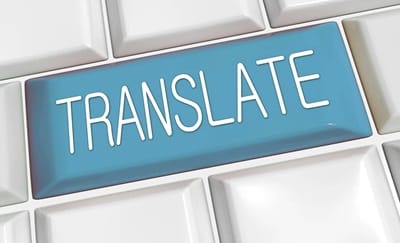Whether for business, academia, or personal purposes, the ability to understand and be understood across languages and cultures can open doors to countless opportunities. Canada, a multilingual nation with a rich tapestry of languages, stands as a prime example of the need for expert translation. This article highlights how to bridge linguistic divides with the help of Canada’s certified translation specialists.
Understanding Canada’s Linguistic Landscape
Canada is renowned for its bilingualism, with English and French as its official languages. However, it’s also home to over 200 other languages spoken as a mother tongue. This linguistic diversity stems from the country’s indigenous communities, immigration trends, and multicultural policies.
As businesses expand and families migrate, there arises a need to translate essential documents, legal paperwork, business contracts, and many more. This is where Canada’s translation experts come in, ensuring accuracy and authenticity.
Why Opt for a Certified Translator?
1. Professionalism and Accuracy: A Canadian-certified translator goes through rigorous training and testing. This ensures that they are well-versed in both the source and target languages and are equipped with the skills to translate complex texts.
2. Cultural Sensitivity: Translation isn’t merely about changing words from one language to another. It’s about capturing the essence, tone, and cultural nuances. A certified translator can aptly convey meaning while respecting cultural subtleties.
3. Confidentiality: Professional translation services uphold strict confidentiality policies, ensuring that sensitive information remains protected.
4. Legal and Official Recognition: Many institutions and governmental bodies require translations by certified experts for official purposes. Using a certified translator ensures that your documents will be widely accepted.
Finding the Right Translation Expert
1. Identify Your Needs: Before seeking a translator, identify the specific languages and type of document you need to be translated. Is it a medical report, a business contract, or a personal letter?
2. Search Reputable Platforms: Numerous platforms list certified translation experts in Canada. The Canadian Translators, Terminologists and Interpreters Council (CTTIC) is a commendable starting point.
3. Check Reviews and Testimonials: Past client experiences can give a glimpse into a translator’s proficiency and reliability.
4. Engage and Evaluate: Before finalising your choice, engage with potential translators. Discussing your project can offer insights into their expertise and approach.
The Value of Collaboration
Working closely with your translator can make a world of difference. Here’s how you can ensure a successful collaboration:
1. Provide Clear Instructions: If there are specific terms or phrases that should remain unchanged, or a particular tone you wish to maintain, communicate this clearly.
2. Share Reference Materials: If you have glossaries, past translations, or any reference materials, share them. It aids in maintaining consistency and quality.
3. Feedback Loop: After receiving your translation, review it and provide feedback. This not only helps in refining the current project but also improves future collaborations.
Final Thoughts
Canada’s linguistic diversity is both a challenge and an opportunity. Bridging the linguistic gaps ensures that communication flows smoothly, opportunities are grasped, and communities remain interconnected. By choosing a Canadian certified translator, you’re not just investing in a service but in expertise, cultural understanding, and peace of mind. The journey from one language to another can be intricate, but with the right professionals by your side, the message will always find its way home.























